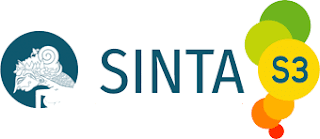Testing Extended Theory Of Planned Behavior in Predicting Entreepreneurship Intention: an Empirical Study
Abstract
This study aims to predict the relationship between attitudes towards entrepreneurship, subjective norms, perceived behavioral control, and entrepreneurship education on entrepreneurial intentions in XYZ University students. The approach of this research is quantitative research. Data was collected by applying questionnaires. This study consisted of 171 respondents. Data was analyzed by applying validity and reliability tests before hypotheses testing. Findings revealed that attitudes towards entrepreneurship had a positive effect on entrepreneurial intentions, subjective norms had positive effects on entrepreneurial intentions, behavioral control was considered to have positive effect on entrepreneurial intentions, entrepreneurship education has a positive effect on entrepreneurial intentions, moderate entrepreneurship education relationships between attitudes towards entrepreneurship with negative entrepreneurial intentions, entrepreneurship education moderates the relationship between subjective norms on entrepreneurial intentions negatively entrepreneurship education moderates the relationship between perceived behavioral control negative about entrepreneurial intentions.
Downloads
Copyright (c) 2021 Riset

This work is licensed under a Creative Commons Attribution-NonCommercial-ShareAlike 4.0 International License.







